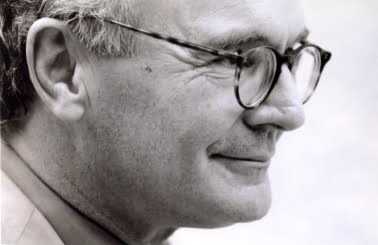
Martin Mosebach
Martin Mosebach was born in Frankfurt am Main in 1951. After studying at a grammar school specializing in the arts he studied law both in his native city and in Bonn, and after graduating set up as a freelance writer in Frankfurt. 1983 saw the appearance of his first novel, »Das Bett« (t: The bed), about a man, the son of German Jewish emigrants, returning to his native Frankfurt. Instead of following paternal orders to re-open a car tyre factory, he holes himself up in the bed of his old nanny Agnes. Mosebach reached a wide readership with »Eine lange Nacht« (2000; t: A long night), a novel of »coming-into-being«.
Mosebach is one of the most multi-faceted of German authors. There is hardly any genre he has not attempted. Alongside pr ose and poetry he writes articles on art and literature for various newspapers, magazines and radio. He has also published plays for radio and stage libretti (among them works for the Salzburg Festival, the Frankfurt Opera and the Freiburg Baroque Orchestra) as well as filmscripts (among them »Buster’s Bedroom« and »Roussel«, both jointly with Rebecca Horn). The visual arts have pr ovided an important fountain of inspiration for the author while also being a subject of critical reflection. Collaborative book pr ojects with artists are evidence of this, such as the volume »Du sollst Dir ein Bild machen« (2005; t: You should make yourself a picture), in which Mosebach, confident of his own insights and independent of pr evailing cultural trends, shares his observations with his readers. His wide-ranging output is paralleled by a penetrating knowledge of the cross-fertilisation of pr ofessional and cognitive territories. A revised edition of »Häresie der Formlosigkeit. Die römische Liturgie und ihr Feind« (2002; t: The heresy of formlessness. The Roman liturgy and its adversary), in which Mosebach addresses the reform of Catholic liturgy since the Second Vatican Council, was published in 2007.
Storytelling and his home city, where nearly all of his novels are set, are central aspects of his work. »It’s part of my special relationship with my home city Frankfurt am Main that I’ve experienced it as one of the most corrupted and ugliest cities in Germany and yet in my imagination and in my inner vision of the city I see it as one of the most beautiful cities I know«, he wrote regarding his ambivalent relationship to the city of his birth. His novel »Westend« (1992), which narrates the destruction of a family, is named after a well-known area of Frankfurt. The recently published novel »Der Mond und das Mädchen« (2007; t: The moon and the maiden) is also set in the banking metropolis.
Mosebach is a member of PEN Club, the German Academy of Language and Poetry in Darmstadt, the Bavarian Academy of Fine Arts and the Berlin Academy of Arts. He has received numerous awards for his work, among them the Heimito von Doderer Prize, the Heinrich von Kleist Prize, the Kranichsteiner Literature Prize of the German Literature Fund, the Grand Literature Prize of the Bavarian Academy of Fine Arts and, most recently, the Büchner Prize.
© international literature festival berlin
Das Bett
Hoffmann & Campe
Hamburg, 1983
Das Kissenbuch
Insel Verlag
Frankfurt/Main, 1995
Das Grab der Pulcinellen
Berlin Verlag
Berlin, 1996
Die Türkin
Aufbau
Berlin, 1999
Westend
Aufbau-Verlag
Berlin, 2000
Eine lange Nacht
Aufbau-Verlag
Berlin, 2000
Der Nebelfürst
dtv
München, 2003
Ruppertshain
dtv
München, 2004
Das Beben
Hanser
München, 2005
Das Lamm
Holzwarth-Publikationen
Berlin, 2005
[Ill. Rebecca Horn]
Du sollst Dir ein Bild machen
Zu Klampen
Springe, 2005
Rotkäppchen und der Wolf
dtv
München, 2006
Schöne Literatur
Hanser
München, 2006
Häresie der Formlosigkeit
Hanser
München, 2007
Der Mond und das Mädchen
Hanser
München, 2007
